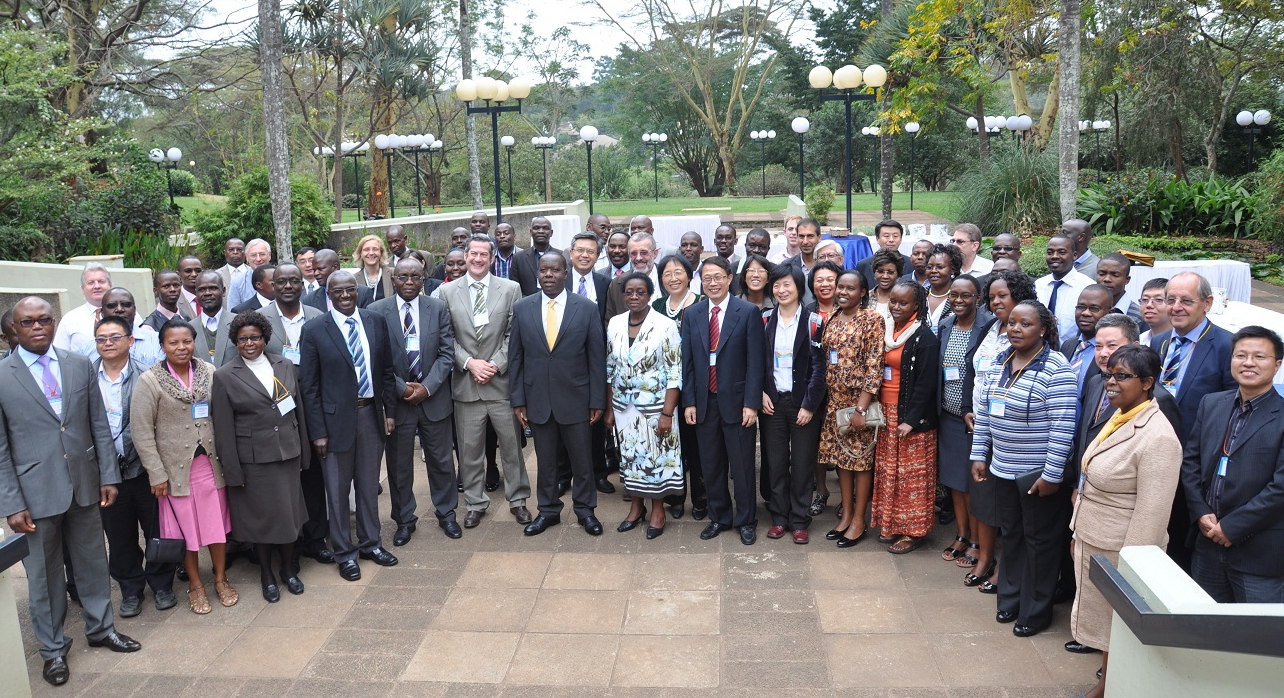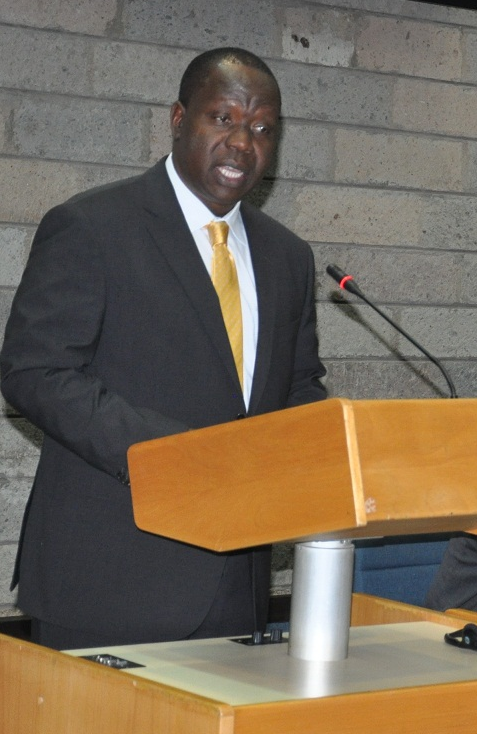
Yesterday, Wednesday 6 August 2014, saw the opening of the International Workshop on Open Data for Science and Sustainability in Developing Countries, organised by CODATA and the CODATA Task Group on Preservation and Access to Scientific and Technical Data with Developing Countries (PASTD) in collaboration with the Jomo Kenyatta University of Agriculture and Technology (JKUAT), the United Nations Educational, Scientific and Cultural Organisation (UNESCO), the Communication and Information Committee, World Federation of Engineering Organization (WFEO-CIC) and the Kenyan Ministry of Information, Communications and Technology (MOICT). The three-day workshop is hosted by UNESCO at the United Nations Offices, Nairobi.
Address by Cabinet Secretary, Dr. Fred Matiang’i

The Opening Ceremony was addressed by Cabinet Secretary, Dr. Fred Matiang’i who presented an inspiring vision of a ‘people-centric, inclusive, open and development-oriented information society’ and the challenges of realising this vision. Dr. Matiang’i argued that there is a need ‘to develop policies, both at the international and national levels, that deal with development and implementation of data and information, including issues around Open Access, Access to Information and Data protection legislation, and on charging and reuse of public sector information.’ To this end, he suggest that ‘specific strategies for ensuring scientific knowledge is placed in machine searchable repositories be developed and implemented by public agencies and universities as drivers. Furthermore, information, research and content funded by governments should be made freely available over the internet as part of the global public commons, to the maximum extent possible.’
Dr. Matiang’i gave his support for the workshop and expressed his certainty that the meeting would be a signfiicant contribution towards addressing these issues. Saying this, he called on CODATA to ‘become more visible in education and capacity-building by developing science and educational programs and activities that focus on data and information and urged CODATA and the workshop partners to develop ‘an action plan that will eventually optimize the flow of information, especially government generated information, research, and content for the benefit of users’.
Dr. Matiang’i also expressed the government’s support for plans to ‘establish a regional Data Sharing Centre to accelerate generation, analysis, management and archival of scientific data to support its development plans’.
This address was a genuinely exciting call for action and greatly appreciated support for the objectives of the workshop. The full text of Dr. Matiang’i’s speech is available here.
Contributions from Workshop Partners
Other speakers at the Opening Ceremony were:
- Dr Mika Odido, coordinator of Intergovernmental Oceanographic Commission of UNESCO’s programmes in Africa and the Adjacent Island States, on behalf of UNESCO representing of Mohamed Djelid, Director of the UNESCO Regional Office for Eastern Africa;
- Professor Xingfa Gu, on behalf of CODATA-PASTD, Co-Chair of CODATA-PASTD;
- Professor Ke Gong, on behalf of WFEO, Vice President of World Federation of Engineer Organization, address available here;
- Professor Mabel Imbuga, on behalf of the Local Organizers, Co-Chair of CODATA-PASTD, Vice Chancellor of Jomo Kenyatta University of Agriculture and Technology, Kenya
Dr Simon Hodson, CODATA Executive Director, read a message from CODATA President, Professor Huadong Guo, who wished the workshop all success and thanked the organisers for their hard work, vision and inspiration. Particular appreciation was extended to Professor Liu Chuang whose superhuman efforts on behalf of the CODATA-PASTD Task Group deserve special recognition. Professor Guo commented that the workshop was a significant event of which the outputs would be recognised at the ICSU General Assembly, CODATA’s own General Assembly and at SciDataCon 2014, the International Conference on Data Availability and Integration for Global Sustainability.
